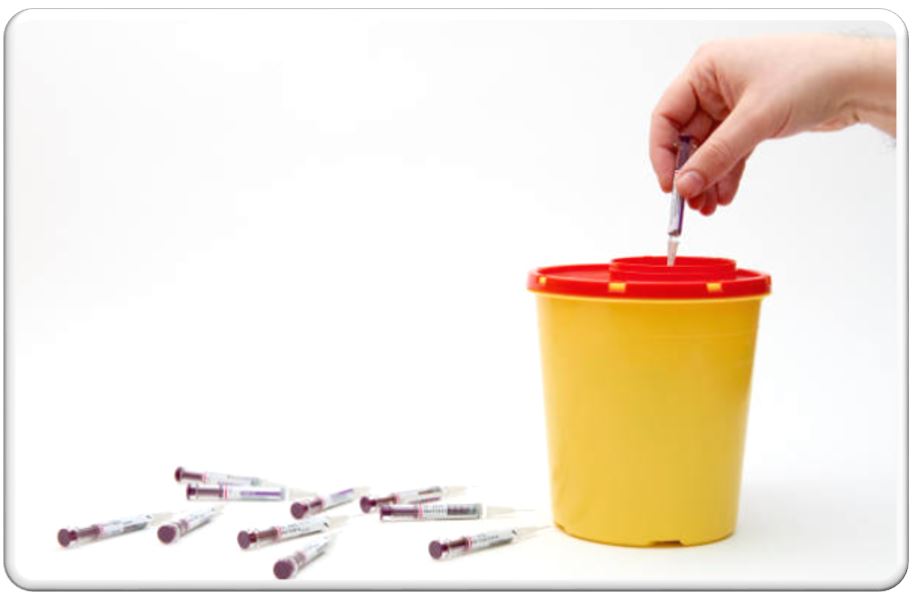- Hold the syringe like a pen, between your forefinger and thumb supported by the third digit.
- Find the deltoid muscle, stretch the site of injection with your other hand (please note, if it's an elderly/frail patient, you may need to pinch the skin and insert to appropriate depth being cautious of the humerus).
- Pierce the skin with the needle at a 90o angle to the skin, and insert needle.
- Deliver the vaccine by pressing the plunger slowly and steadily, do NOT draw back on the needle.
- Withdraw the needle and dispose in the clinical waste disposal sharps bin.
- Apply pressure with gauze, do not rub the site of injection.
- A plaster is not usually applied due to possible allergic reactions.
After vaccination
- Keep the patient seated for 5 minutes after vaccination to assess for any possible signs
 of anaphylactic reaction (WHO state that anaphylaxis can occur between 5-30 minutes).
of anaphylactic reaction (WHO state that anaphylaxis can occur between 5-30 minutes). - Use this time to record the following information.
- The vaccine name, product name, batch number and expiry date.
- The dose administered.
- The site used.
- The date of vaccination.
- The name and signature of the person administering the vaccination.
- Advise the customer on the signs of allergic reaction and to contact the pharmacy if they have any of these signs or symptoms.
- Advise on how to treat possible pyrexia.
Summary
- Healthcare professionals running a vaccination service must have initially had face-to-face training on administering injections and managing anaphylaxis, then periodic face to face refresher training for vaccinators should be considered to ensure the consistency of practice in England, Scotland and Northern Ireland. In Wales, the requirement is annually. Check the service specification for the latest requirements.
- Vaccines must be stored according to strict protocols, ensuring that the cold chain is maintained.
- Consent must be obtained before administering a vaccine.
- Before administration, vaccines must be checked to ensure they are correct and within expiry date.
- Vaccines and accompanying equipment should be disposed of immediately in a ‘sharps’ box.
